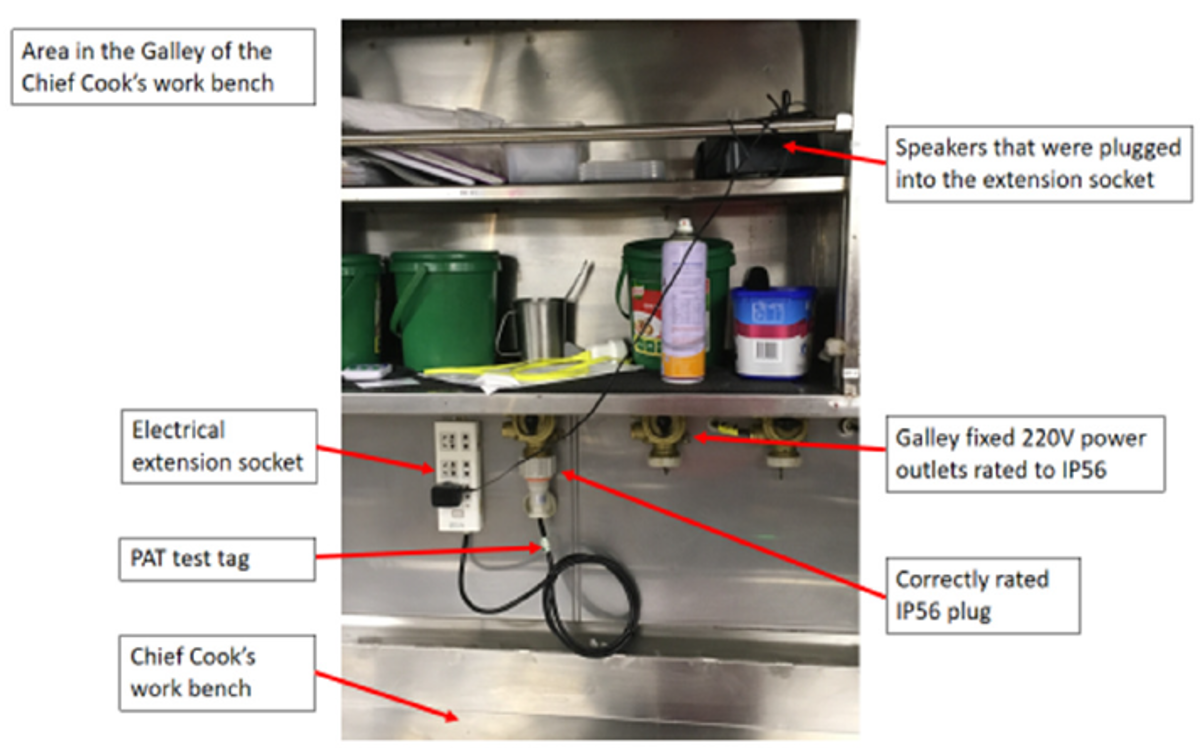Galley electric shock – Uncontrolled portable electrical equipment
- Safety Flash
- Published on 4 June 2019
- Generated on 25 February 2026
- IMCA SF 13/19
- 1 minute read
Jump to:
A person cleaning the galley got a mains electric shock.
What happened?
During galley cleaning, the chief cook was using a wet cloth to wipe clean the food preparation areas.
Mounted adjacent to the splash back was an electrical power board/extension socket.
The wet cloth contacted the electrical power board, resulting in the chief cook receiving a mild electric shock, felt as a ‘tingle’ to the arm.
Electrical outlets in the galley should be IP56 rated to protect against water. However, a non-IP-rated electrical power board had been paired with an IP-rated plug to enable the use of personal appliances (powered speakers) in the galley.

What actions were taken? What lessons were learned?
- Removal of the unsuitable power board/extension socket.
- Thorough review of the need for, and use of, power boards/extension sockets.
- Focused inspections of accommodation and working areas to identify unauthorised electrical appliances/power boards.
- Identify safe (authorised) areas outside of work zones for charging/use of personal appliances.
- Reiterate to crew: When working with equipment, NEVER improvise by using non-standard or makeshift equipment.
Related Safety Flashes
-
IMCA SF 18/18
23 August 2018
-
-
IMCA SF 05/10
28 July 2010
-
IMCA SF 10/07
20 December 2007
IMCA Safety Flashes summarise key safety matters and incidents, allowing lessons to be more easily learnt for the benefit of the entire offshore industry.
The effectiveness of the IMCA Safety Flash system depends on the industry sharing information and so avoiding repeat incidents. Incidents are classified according to IOGP's Life Saving Rules.
All information is anonymised or sanitised, as appropriate, and warnings for graphic content included where possible.
IMCA makes every effort to ensure both the accuracy and reliability of the information shared, but is not be liable for any guidance and/or recommendation and/or statement herein contained.
The information contained in this document does not fulfil or replace any individual's or Member's legal, regulatory or other duties or obligations in respect of their operations. Individuals and Members remain solely responsible for the safe, lawful and proper conduct of their operations.
Share your safety incidents with IMCA online. Sign-up to receive Safety Flashes straight to your email.